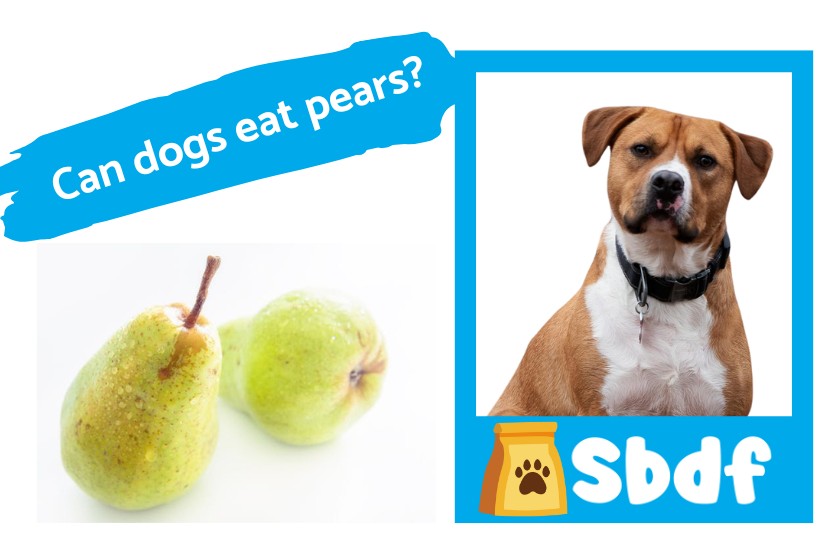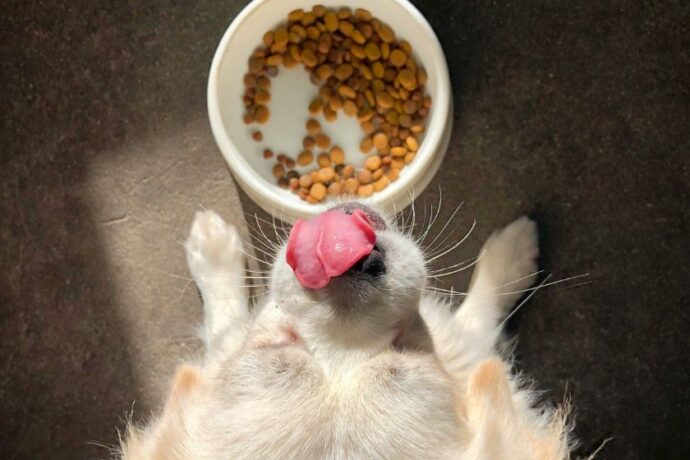
Pears are sweet and nutritious snacks that anyone can enjoy, but does that mean it’s okay to share these fruits with your dog? It’s a question that arises from many pet owners who don’t know how different fruits affect a dog’s metabolism, digestive system, and other biological functions. With that said, though, pears are relatively safe for your dog to eat, so long as they do so in moderation.
Are Pears Good for Dogs?
First and foremost, the answer to the question, “Can dogs eat pears?” is yes. While overweight dogs can more safely enjoy some coconut as a low-sugar alternative, most dogs can eat pears without suffering any adverse health effects.
In addition to tasting good, pears also make for a good treat because they are low in carbs and have very few calories. They also serve as an excellent source of vitamins A, C, and K.
Alongside that, pears provide the following additional nutrients that positively impact canine health:
- Fiber
- Antioxidants
- Copper
- Folate
- Potassium
- Anthocyanins
- Lutein
- Zeaxanthin
Together, these nutrients help fight obesity and diabetes; some even help to prevent cancer and inflammation!
However, even with these health benefits in mind, be aware that too many pear pieces can cause inflammation of a dog’s gastrointestinal tract. As such, you’ll want to keep servings small to prevent vomiting, diarrhea, and a loss of appetite.
How Can Pears Negatively Affect Your Dog’s Health?
Given the benefits detailed above, a question like “Are pears safe for dogs?” will also be met with a solid yes. For the most part, pears are safe for dogs to eat, but you’ll want to avoid feeding them the seeds. While a dog can safely eat pumpkin seeds, for instance, pear seeds contain cyanide. Even a small pear seed has enough to cause severe health problems for your dog.
Additionally, avoid feeding canned pears to your dog, as manufacturers add a high-sugar syrup to the canning process to help preserve the pears. That excess sugar causes blood sugar spikes, and even if your dog isn’t diabetic, too much sugar can lead to metabolic health issues.
Can Dogs Eat a Pear? How Much Is Okay?
Though they provide clear health benefits, you may still ask, “Can dogs have pears often?” The answer is that pears should be a rare treat for your pet, as their higher sugar content (17 grams in a medium-sized pear) can pose health risks.
Consider the following guide to help you determine serving sizes when feeding your dog pears:
- Toy dog (2-20 pounds): One ½-inch wide by ¼-inch thick piece
- Small dog (21-30 pounds): Two or three 1-inch by ¼-inch thick pieces
- Medium-sized dog (31-50 pounds): Five or six 1-inch by ¼-inch thick pieces
- Large-breed dogs (51-90 pounds): Seven or eight 1-inch by ¼-inch thick pieces
- Extra-large dogs (over 91 pounds): Up to ten 1-inch by ¼-inch thick pieces
You can serve pear pieces as they are or mash them up to create a tasty pulp. You can even freeze pear pieces for a summertime treat or mix them with other dog-safe treats like blueberries, apples, or strawberries for a pup-friendly fruit salad.
You Can Let Your Dog Share an Occasional Pear
Are pears okay for dogs? For the most part, yes. You can start sharing the fruit with your dog — just observe how they react to their first piece. While pears are okay for most dogs, your pet might have an allergy that makes pears unsafe for them. If your dog experiences digestive issues like vomiting or diarrhea, consult your vet immediately.



